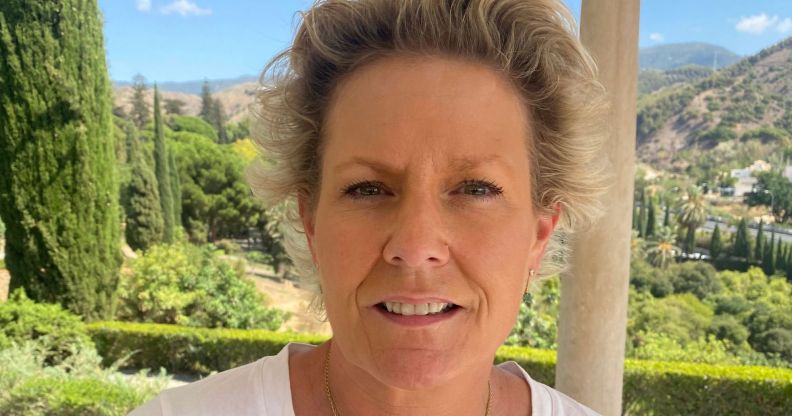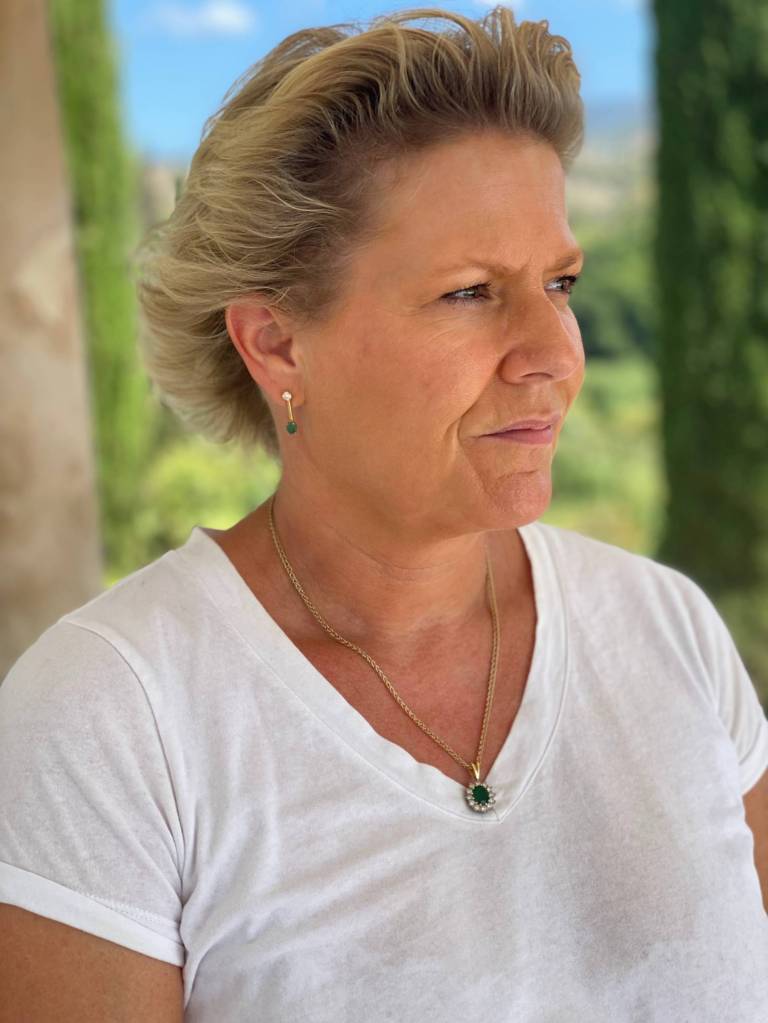Dr Helen Webberley: Horrid state of trans healthcare in UK is sign of a system in shambles

Doctor Helen Webberley, founder of GenderGP, says GPs in the UK have had “no education, exposure or training” on gender-affirming healthcare. And it’s hurting trans people. (Helen Webberley)
Trans healthcare in the UK has been in an appalling state for a while, and Doctor Helen Webberley says it’s a symptom of a healthcare system without “proper leadership and guidance”.
Webberley set up her online clinic GenderGP to help trans people of all ages access the gender-affirming healthcare that they felt fit their journey.
But her life-saving work has drawn complaints from fellow doctors on the General Medical Council (GMC), and some challenged her practice.
In 2018, Webberley was convicted of failing to register GenderGP with Healthcare Inspectorate Wales and fined £12,000. Then, a 2022 decision by the Medical Practitioners Tribunal concerning her treatment of three trans patients – aged 11, 12 and 17 and named only as patients C, B, and A respectively – left her unable to practice.
But on 31 March, a High Court judge overturned the tribunal’s decision, saying the panel’s thinking was “clearly wrong in places”. The decision finally allowed Webberley to return to work as a doctor, and she tells PinkNews that it was a triumphant moment.
“It was just incredible, and what I knew was that it was going to change transgender healthcare for the future,” she tells PinkNews.
“If just a female GP like me can prove that I can gain the skills and the knowledge and the experience to help trans adults and children; if I can learn how to give puberty blockers to a trans adolescent whose started puberty which was patient C; if I can learn how to prescribe testosterone for a trans masculine adolescent who was 16, who was struggling with a very long waiting list and that was patient B; if I can learn and develop the skills to induct a testosterone puberty in a 12-year-old trans boy, who’s settled in his identity and just can’t wait until 16 to start puberty, which was patient A.
“If just a female, simple GP like me can learn those skills to do that safely, caringly and passionately, then any doctor can help, and that’s what I want.
“That’s the message that I want to give out there. There are so so many people desperate for help, and GPs currently are saying go to the specialist clinics. And the patients are saying, ‘But I can’t do it.’”

Gender-affirming healthcare is a lifeline for many trans, non-binary, genderqueer and other LGBTQ+ people. Countless studies have found access to such treatments has been a boon for peoples’ mental health.
But many find themselves on years-long waiting lists to get in the door at a NHS gender clinic before even considering additional waits for later prescriptions and surgical referrals.
For trans youth, the situation is even more dire as the Tavistock clinic – the UK’s only gender identity clinic for youth – is closing with reportedly no back-up yet in place to help trans youth access life-saving treatments.
Doctor Helen Webberley says that GPs in the UK have had “no education, exposure or training” on gender-affirming healthcare, and it’s led to a toxic model where trans people can feel invalidated accessing such treatments.
“In this country, we haven’t had any proper leadership and guidance,” she says. “So if you ask doctors, what training did you get? None. What do you understand about gender? Not much.”
She continues: “So whoever is responsible for setting the standards of care, of education and of equality is failing… Doctors each have a training handbook [and in it] there’s a curriculum.
“Every single speciality has a curriculum, and transgender medicine and gender identity is not mentioned in any of them.
“So doctors will say, ‘I don’t know’, and I get it because no one’s told you [that] you have to be taught it.
“So then, the majority of people are just left to their own devices. What do they understand about gender?”
This lack of education and understanding can lead medical professionals to a “fundamentally wrong” understanding of gender identity, she says.

Doctor Helen Webberley says it doesn’t help that there’s a toxic pushback on the lives of trans people in the UK media and politics, with online abuse rampant, which can further impede on healthcare professionals and leaders being able to learn about trans healthcare.
“We need to call on leaders – the leaders need to start listening to the people,” she says. “In healthcare, the leaders are the NHS, the Department of Health, the General Medical Council.”
She continues: “They shouldn’t be sitting in their office going, ‘Oh, let’s wait and see what happens.’
“They should be asking people – real people, real stakeholders – what they should be going. Eat humble pie and go, ‘Come on, how can we sort this out for you?’
“I do know that it will change because what I honestly know if that truth always wins, and we know that sometimes it takes time.
“It does take time, and it’s really painful while it’s happening. But truth does prevail…. We’ve just got to hold and do the best we can to support, train, educate, inform and empower in the meantime.”
There have been legal challenges over the immense wait times trans adults face on the NHS.
In January, the High Court deemed these wait times – which can stretch from anywhere to just a bit over a year to more than six years – lawful.
This is despite the NHS having a statutory requirement that at least 92 per cent of patients using the healthcare service should have a referral-to-treatment time of no more than 18 weeks.
However, the four trans people, trans-led charity Gender Intelligence and not-for-profit the Good Law Project are challenging the High Court’s decision.
NHS England has reportedly pledged to offer greater protection to trans youth seeking gender-affirming healthcare after a separate legal challenge by the Good Law Project.

